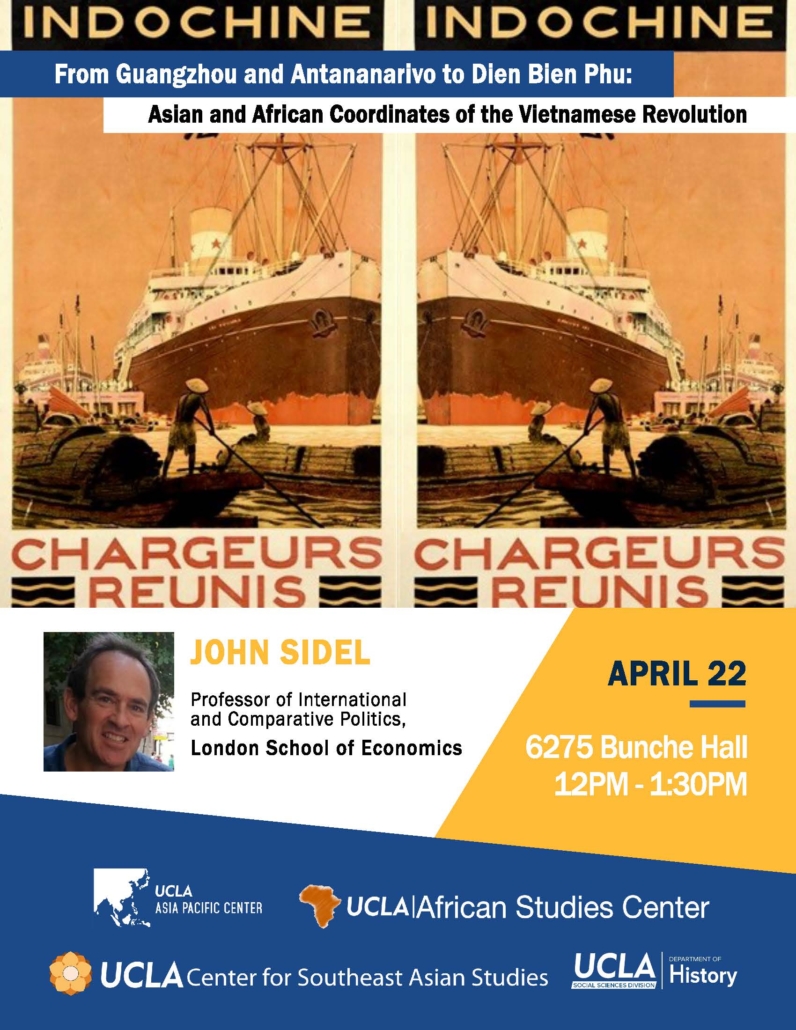

Why, of all the countries in Southeast Asia, was it only in Vietnam that the struggle for national independence led to a Communist Party-led revolution? Drawing on a rich and growing body of revisionist scholarship, this lecture suggests that the answer lies beyond the borders of Vietnam and the boundaries of Vietnamese nationalism. Viewed in regional comparative perspective and through analytical lenses which keep French colonial Indochina, the Asian ‘Sinosphere’ and the African ambit of the French Empire in focus, Vietnam stands out not for the breadth and depth of nationalist consciousness but rather for the strength and significance of its transcontinental and trans-oceanic linkages in the making of “Vietnamese” society and the making of the Vietnamese revolution. In particular, the lecture shows how evolving connections to southern China and the inclusion of Vietnam both within French colonial “Indochina” and the French Empire as a whole shaped the possibilities for successful socialist revolutionary struggle in Vietnam, leading up to the defeat of of French forces at Dien Bien Phu in 1953, the establishment and entrenchment of the DRV north of the 17th Parallel from 1954, and the extension of the Vietnamese revolution across the full breadth of Indochina by 1975.
John T. Sidel is the Sir Patrick Gillam Professor of International and Comparative Politics at the London School of Economics and Political Science (LSE). He is the author of Capital, Coercion, and Crime: Bossism in the Philippines (Stanford University Press, 1999), (with Eva-Lotta Hedman) Philippine Politics and Society in the Twentieth Century: Colonial Legacies, Postcolonial Trajectories (Routledge, 2000), Riots, Pogroms, Jihad: Religious Violence in Indonesia (Cornell University Press, 2006), and The Islamist Threat in Southeast Asia: A Reassessment (East-West Center, 2007), as well as two forthcoming books: Coalitions for Change in the Philippines: Legacies, Linkages, Lessons (co-authored with Jaime Faustino), and Republicanism, Communism, Islam: Cosmopolitan Origins of Revolution in Southeast Asia.


